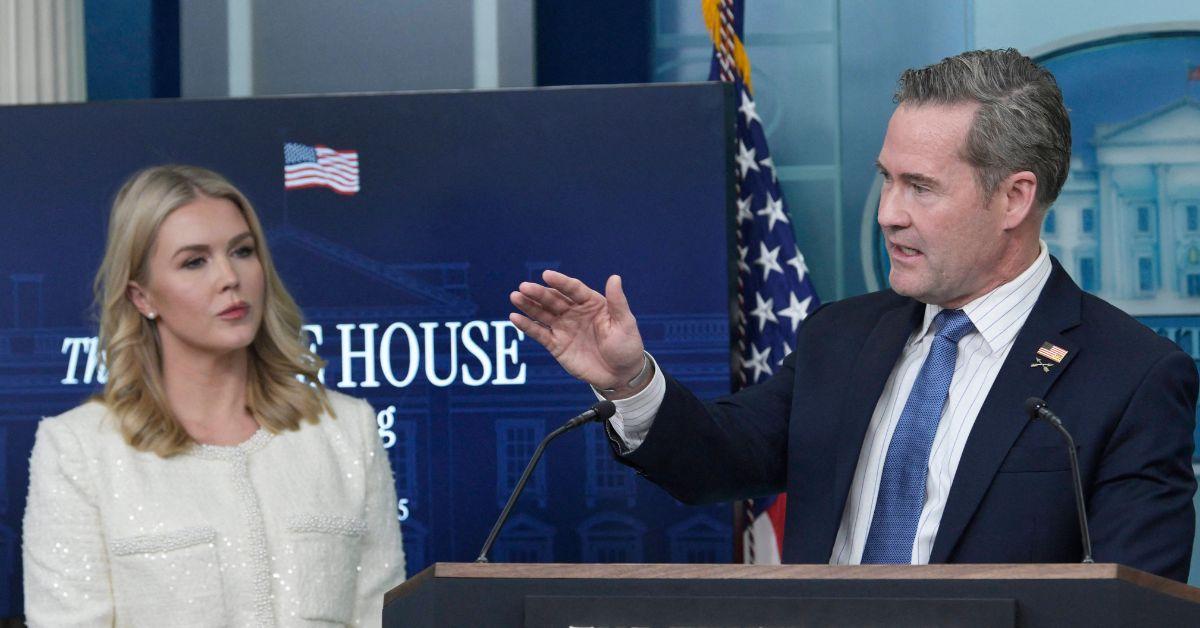Mike Waltz Is out as Trump's National Security Advisor, but Why Is He Leaving?
Waltz might be best known for his role in Signal-gate.
Published May 2 2025, 10:12 a.m. ET

As Donald Trump commemorates the first 100 days of his administration, he's also making some of the first staffing changes to his administration. Among those changes is the news that Mike Waltz will no longer be serving as the national security advisor and has been nominated to be ambassador to the United Nations.
Trump announced that Marco Rubio, who already has three titles within the administration, will also now serve as the interim national security advisor. Following the news that Waltz was out, many wanted to know more about whether he resigned or was ousted. Here's what we know.

Why did Mike Waltz resign as national security advisor?
Although it's possible that it was Waltz's idea to relinquish his position, what seems more likely is that Waltz was ousted by Trump. Trump announced the news on Truth Social, but didn't offer any explanation for his decision.
"I am pleased to announce that I will be nominating Mike Waltz to be the next United States Ambassador to the United Nations," he wrote on Truth Social.
"From his time in uniform on the battlefield, in Congress and, as my National Security Advisor, Mike Waltz has worked hard to put our Nation’s Interests first," Trump's post continued.
Reports first emerged earlier in the day that Trump was planning to remove Waltz from his role. The former Republican lawmaker and Green Beret had been the subject of criticism throughout his time in the position, particularly for his role in the Signal scandal that broke in March.
Waltz was central to that scandal as he was the one who put the Signal group in question together, and was therefore also the person who inadvertently invited Atlantic editor Jeffrey Goldberg to join the group. Although Secretary of Defense Pete Hegseth was the one who shared sensitive battle plans in the chat, Waltz was the one most responsible for the inclusion of Goldberg.
Trump didn't want to fire anyone before the 100-day mark.
Although Trump's first term was characterized in part by a staff that turned over remarkably often, a source told Reuters that Trump wanted to get to the 100-day mark without any major administrative shakeups. The move to fire Waltz apparently happened quite suddenly, so much so that the State Department spokesperson didn't even know about the decision until it had been announced.
Rubio will now be the second person ever to be both Secretary of State and national security advisor. The NSA is a powerful position that doesn't require Senate confirmation. During his first term, four people served in that role for various lengths of time: Michael Flynn, H.R. McMaster, John Bolton, and Robert O'Brien.
While Trump didn't offer a rationale for his decision to move Waltz to a less prestigious role, it seems likely that his decision was related to the Signal leaks and the ensuing scandal. The administration might have needed a fall guy for that blunder, and Trump decided that Waltz was the ideal patsy.